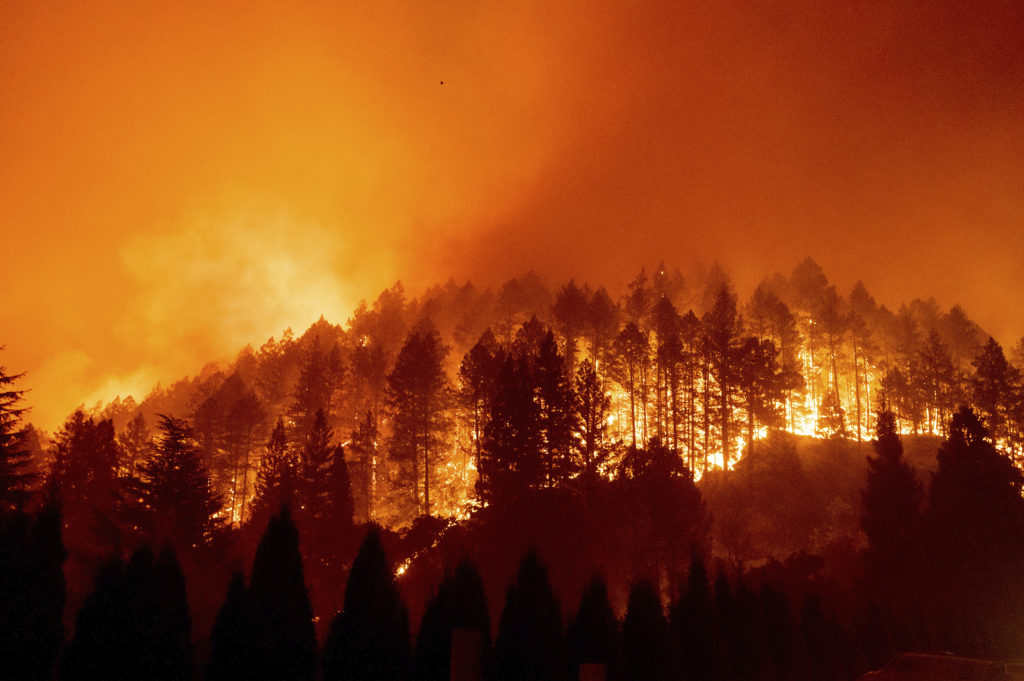
Raging fires from the California coast to southern Utah County have created an atmosphere of dismal, hazy fog hovering in the valley during the last few months.
Utah citizens are still seeing effects in their air, weeks after the initial California fires. Heston Helquist, a Farmington resident, spotted smoke by his house as late as Sept. 23.
“I definitely saw smoke and haze around, even this morning,” Helquist said. “It’s pretty long-lasting.”
Jared Mendenhall is the spokesperson and Public Information Officer for the Utah Department of Environmental Quality. He explained the difference between the smoke traveling from California fires and the smoke from localized fires and the health risks involved with each.
“These (California) fires are so intense that they pushed the plumes of smoke high in the atmosphere, and they get carried along the jet stream of the prevailing winds. The valleys of Northern Utah are a really good place for that to settle,” Mendenhall said.
Mendenhall explained that the California fires are less alarming from a human health perspective; our bodies have a natural filtration system that keeps out harmful particles. It is more concerning when the fine particulate matter of pollution becomes small enough that they can bypass our body’s “filters.”
“The long-range transport of smoke coming in from California for most of the summer, those hazy days, reaches into moderate level for health concerns,” he said.
Mendenhall also addressed the other concern of smaller, localized fires and said this smoke tends to stay in the air. It is also closer to ground level, which causes more concern for health effects because of higher concentrations of smoke in the air.
Mendenhall said sometimes smoke pollution looks worse than it is due to its height in the atmosphere. This smoke is just moving through, he explained, rather than building up like in an inversion, and will eventually go away.
People who will be most affected by poor air quality due to fires are sensitive populations that have pre-existing heart or lung conditions, like asthma. To those, Mendenhall advised to stay aware of the weather forecasts and stay indoors when necessary.
The top piece of advice Mendenhall gave residents is to listen to their bodies. If you start to smell smoke, cough, or experience eye irritation, simply go inside and keep your doors and windows shut, he said.




